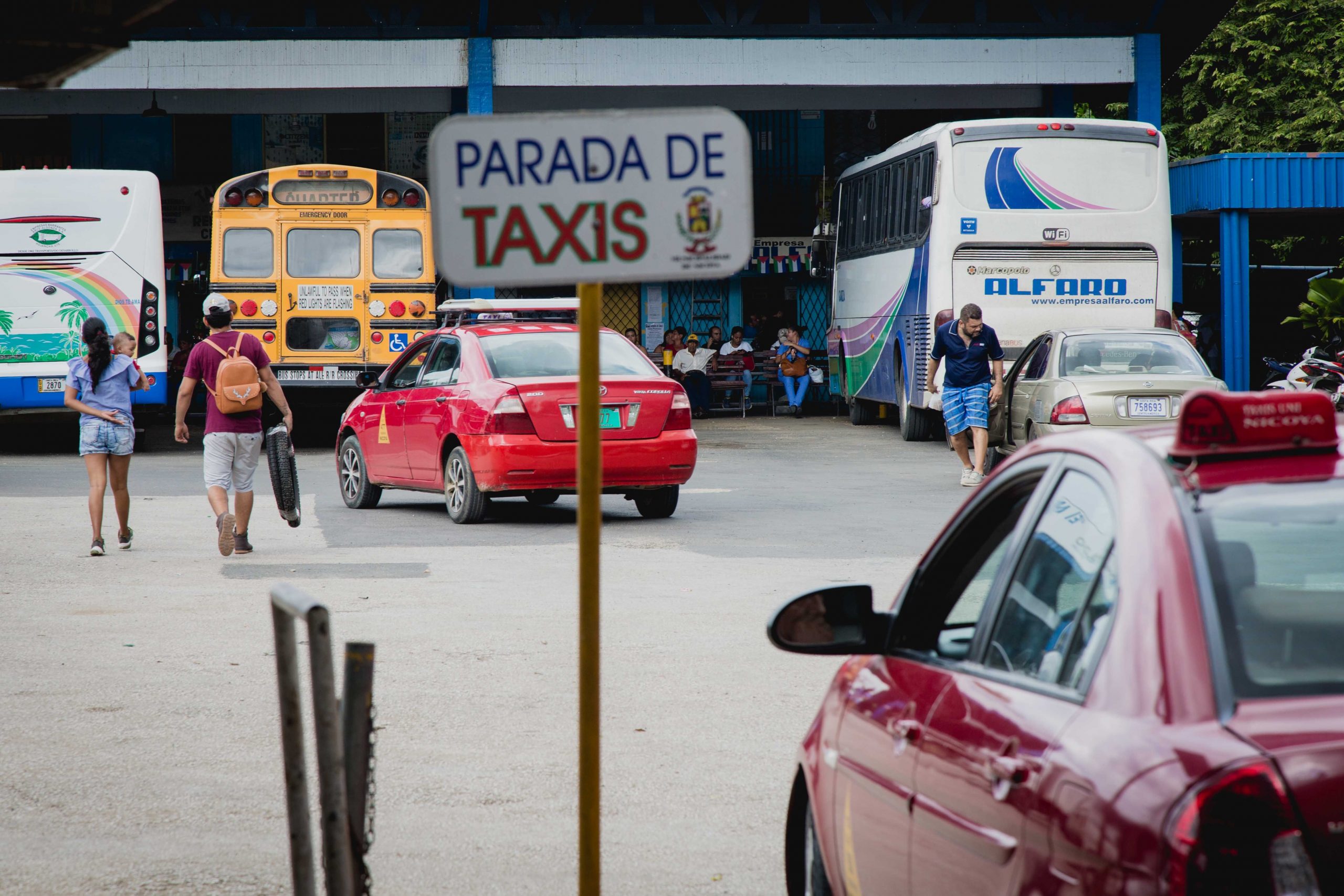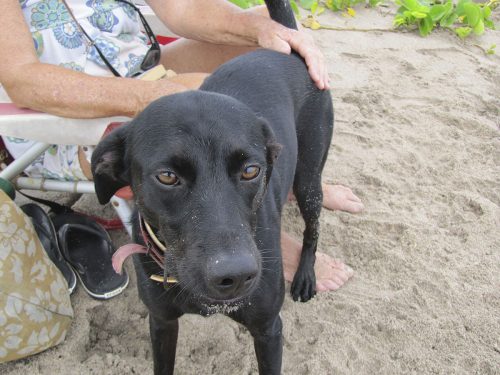
A dog died of suffocation while traveling between Nosara and Esparza in the cargo compartment of an Empresa Alfaro bus. The company said the driver allowed the owner to take him there “as a courtesy”. Following the incident, Alfaro suspended the transport of pets on all its routes.
The country has no laws regulating how and whether pets can be brought on public transport. For this reason, and in view of what happened, a congressman proposed a bill to update the current legislation.
This project, the existing regulations in other countries and a national “Pet Friendly” certification could inspire and position Costa Rica as a pioneer in the region.
What does the law currently state?
The current Transit Law, last updated in 2012, prohibits owners from bringing their pets onto buses, cabs, trains and other types of public or shared transport, with the sole exception of service dogs that assist people with disabilities.
The Article 47 states it this way:
“Drivers of vehicles destined for public transportation, as well as transit officers and other police authorities, are authorized to deny entry or demand the removal of passengers inside the vehicle, when (…) the passenger is carrying sharp objects, unauthorized weapons, explosive, hazardous materials or animals, except for assistance animals for disabled persons.”
The expert in animal welfare and director of the Canine Training Center Fogaus, David Peiró, indicated that at the moment neither the Costa Rican law nor any public entity protects owners and pets in situations like the one that occurred in the Alfaro bus.
At this moment pet owners simply cannot do anything. The only option is private transport,” said biologist and canine behavioral specialist Mr. Peiró.
He explained that the national traffic legislation does not recognize that pets are an essential part of people’s lives, a vision that has changed with time and the lifestyles of the newer generations.
“For several years now, pets have been an integral part of families. Every piece of legislation is based on obsolete concepts because animals are no longer just creatures that protect our house, they are part of the Costa Rican family,” said the expert.
The Transit Law also fails to explain the correct way to transport pets in private vehicles. The website of the Ministry of Public Works and Transportation (MOPT) explains it this way: “There are no specific indications in the law regarding how or where they (the animals) should travel, although they cannot travel in the driver’s seat, since the driver cannot engage in any activity other than driving.”
We should not have to see dogs dying in cargo compartments to know that the current laws are a problem,” said Peiró
New law reform proposes a change
A day after the Alfaro bus incident, Liberalist Congressman Roberto Thompson presented a bill to modify article 47 of the Transit Law.
Thompson explained in his social media that the modification seeks to create a “protocol” to clarify all the necessary points about traveling with pets, including the rights and duties of the bus companies as well as the pet owners.
According to the document, the bill proposes to allow pet owners to bring their pets onto public transport. However, the responsibility would fall on the pet owners themselves, who must ensure that traveling with their pets does not affect other users.
The Voice of Guanacaste tried to discuss the proposal further with the Congressman, but at the time of publication we had not received any response yet.
The situation outside Costa Rica
For animal control expert David Peiró, the country’s laws are only a reflection of those in the region. “Latin America still has a long way to go to legislate for the welfare of our pets. Costa Rica could be one of the first in the region,” he emphasized.
One of the countries that has made some progress is Argentina, where it is legal to travel with your pet in the subway, as long as you carry it in a “closed, ventilated and clean” carrier. At the moment it is not possible to take them on a bus though.
Other regions, such as the EU, allow people to travel on public transport with their pets when:
- They are in a carrier.
- They are vaccinated against rabies.
- They have been treated for echinococcosis disease (infection caused by worms).
- They have a European passport for animals.
This last requirement is a document containing the animal’s data and can be issued by any licensed veterinarian.
Costa Rica is still a reference country for pet-friendly spaces.
Despite the lack of regulation regarding traveling with pets on public transport, Costa Rica is the only country in the world that has the possibility of officially certifying businesses as “Pet Friendly”, through the Institute of Technical Standards (Inteco).
This certification offers commercial businesses the guarantee that their facilities are safe spaces for pets. Not all businesses can qualify as “Pet Friendly”.
Currently hotels, restaurants, shopping malls, private transportation services and parks can apply.
Peiró said that this certificate, unique in the world, can inspire future legislation to be more effective in adapting public transport for pets. With the possible change in laws, public transportation cooperatives will also be able to apply for this category.







Comments